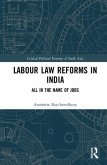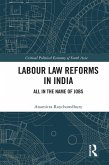
Gebundenes Buch
All in the Name of Jobs
28. März 2018
Taylor & Francis Ltd (Sales)

Ähnliche Artikel

Gebundenes Buch
Perspectives on South Asian Diaspora
31. Mai 2013
Taylor & Francis Ltd (Sales)


Gebundenes Buch
A Comparative Historical Perspective of Romanian Roma
3. Dezember 2024
Taylor & Francis

Gebundenes Buch
Entwining Challenges
13. September 2018
Taylor & Francis Ltd (Sales)

Gebundenes Buch
Carpet Without Magic
8. Juni 2001
Taylor & Francis

Gebundenes Buch
The Politics of Ethnicity in Assam
17. Oktober 2013
Taylor & Francis Ltd (Sales)

Gebundenes Buch
17. Januar 1995
Taylor & Francis Ltd (Sales)

Gebundenes Buch
18. Juli 2017
Taylor & Francis Ltd (Sales)


Gebundenes Buch
Mediating Political Dissent
22. Februar 2016
Taylor & Francis Ltd (Sales)
Ähnlichkeitssuche: Fact®Finder von OMIKRON
